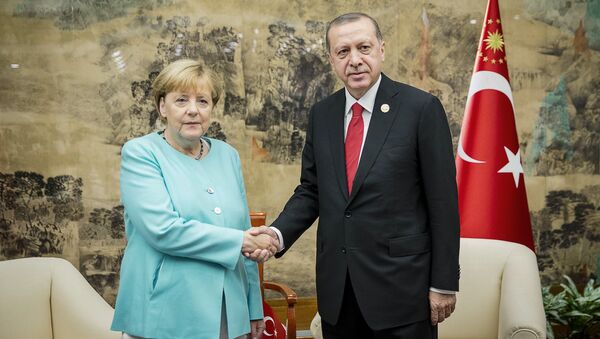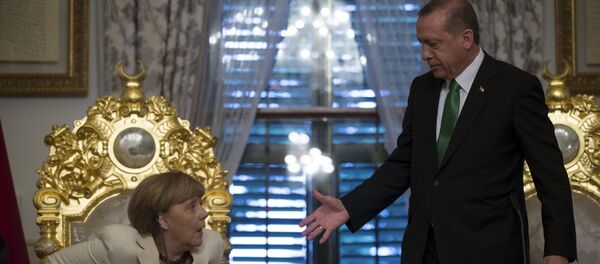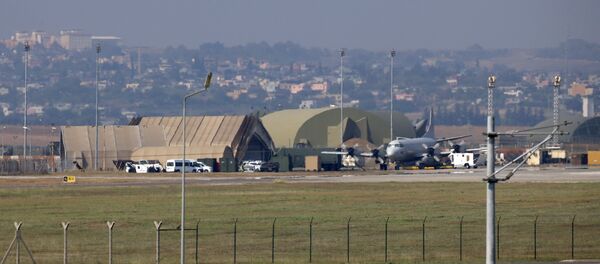The two's symbolic language did not speak in favor of the German Chancellor, Die Welt commentator Von Torsten Krauel said, referring to a tiny German flag seen against the background of two large Turkish flags during their meeting in Hangzhou.
"The Chancellor and the Turkish President met on neutral territory, where theoretically their talks looked like the meeting of two equal partners in NATO. But visually it looked as if repentant Angela Merkel had come for an audience with the Sultan in Ankara," he said.
🆘‼️🐸🔥 This is not in #Turkey! Yesterday in Chinese #Hangzhou. #Erdogan again only Turkish flag erected. #G20 #Merkel pic.twitter.com/ywEJe5Trk9
— Onlinemagazin (@OnlineMagazin) 5 сентября 2016 г.
According to him, the situation with the flags during the Merkel-Erdogan meeting in China could be explained by the German Chancellor's willingness to make it plain that Berlin is not going to abolish EU visas for Turkish citizens in October despite Ankara backsliding on human rights after July's attempted coup in Turkey.
"Perhaps through concessions in the flags-related issue Merkel thought that it would be easier to tell Erdogan to let German MPs once again get access to the Incirlik airbase so that Berlin can refrain from deploying German warplanes on the Greek part of Cyprus," Kraule said.
However, there is another side to the coin, he said, adding that "if Erdogan stops adhering to the Turkey-EU agreement on refugees, he will be able to decide the political fate of Angela Merkel."
"The promise that the 2015 influx of refugees would not be repeated depends on whether Ankara will continue to keep its border closed. In this sense, the human sized Turkish flag is also a symbol of blackmail," Kraule noted.
He urged Merkel "to demonstrate the fact that Berlin is not the capital of a Turkish province", recalling that the German side has "a red line of self-esteem."
Meanwhile, experts said that chances of improvement between both sides remains slim as mutual discontent keeps mounting.
Points of the Berlin-Ankara contention include the diplomatic row sparked by a German comedian, who wrote a satirical poem that mocked Erdogan, sparking a firestorm in Turkey.
Most recently, European Commissioner for Digital Economy and Society Guenther Oettinger said that Turkey will not become an EU member while Erdogan remains in power.
He was echoed by Martha Simms, who worked as a staffer in the German parliament.
"Germany's relationship with Turkey has never been so fraught. Diplomatic relations between the two countries have gone from bad to worse with little improvement in sight," she wrote for the US magazine National Interest.




